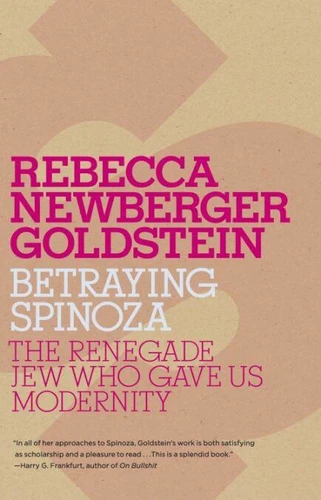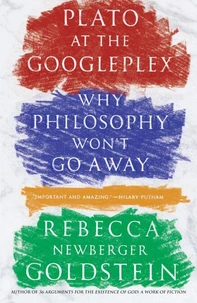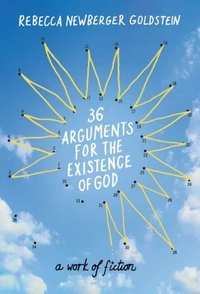Betraying Spinoza. The Renegade Jew Who Gave Us Modernity
Par :Formats :
Disponible dans votre compte client Decitre ou Furet du Nord dès validation de votre commande. Le format ePub protégé est :
- Compatible avec une lecture sur My Vivlio (smartphone, tablette, ordinateur)
- Compatible avec une lecture sur liseuses Vivlio
- Pour les liseuses autres que Vivlio, vous devez utiliser le logiciel Adobe Digital Edition. Non compatible avec la lecture sur les liseuses Kindle, Remarkable et Sony
- Non compatible avec un achat hors France métropolitaine
 , qui est-ce ?
, qui est-ce ?Notre partenaire de plateforme de lecture numérique où vous retrouverez l'ensemble de vos ebooks gratuitement
Pour en savoir plus sur nos ebooks, consultez notre aide en ligne ici
- Nombre de pages304
- FormatePub
- ISBN978-0-8052-4273-7
- EAN9780805242737
- Date de parution11/08/2009
- Protection num.Adobe DRM
- Taille3 Mo
- Infos supplémentairesepub
- ÉditeurSchocken
Résumé
Part of the Jewish Encounter seriesIn 1656, Amsterdam's Jewish community excommunicated Baruch Spinoza, and, at the age of twenty-three, he became the most famous heretic in Judaism. He was already germinating a secularist challenge to religion that would be as radical as it was original. He went on to produce one of the most ambitious systems in the history of Western philosophy, so ahead of its time that scientists today, from string theorists to neurobiologists, count themselves among Spinoza's progeny.
In Betraying Spinoza, Rebecca Goldstein sets out to rediscover the flesh-and-blood man often hidden beneath the veneer of rigorous rationality, and to crack the mystery of the breach between the philosopher and his Jewish past. Goldstein argues that the trauma of the Inquisition' s persecution of its forced Jewish converts plays itself out in Spinoza's philosophy. The excommunicated Spinoza, no less than his excommunicators, was responding to Europe' s first experiment with racial anti-Semitism.
Here is a Spinoza both hauntingly emblematic and deeply human, both heretic and hero-a surprisingly contemporary figure ripe for our own uncertain age.
In Betraying Spinoza, Rebecca Goldstein sets out to rediscover the flesh-and-blood man often hidden beneath the veneer of rigorous rationality, and to crack the mystery of the breach between the philosopher and his Jewish past. Goldstein argues that the trauma of the Inquisition' s persecution of its forced Jewish converts plays itself out in Spinoza's philosophy. The excommunicated Spinoza, no less than his excommunicators, was responding to Europe' s first experiment with racial anti-Semitism.
Here is a Spinoza both hauntingly emblematic and deeply human, both heretic and hero-a surprisingly contemporary figure ripe for our own uncertain age.
Part of the Jewish Encounter seriesIn 1656, Amsterdam's Jewish community excommunicated Baruch Spinoza, and, at the age of twenty-three, he became the most famous heretic in Judaism. He was already germinating a secularist challenge to religion that would be as radical as it was original. He went on to produce one of the most ambitious systems in the history of Western philosophy, so ahead of its time that scientists today, from string theorists to neurobiologists, count themselves among Spinoza's progeny.
In Betraying Spinoza, Rebecca Goldstein sets out to rediscover the flesh-and-blood man often hidden beneath the veneer of rigorous rationality, and to crack the mystery of the breach between the philosopher and his Jewish past. Goldstein argues that the trauma of the Inquisition' s persecution of its forced Jewish converts plays itself out in Spinoza's philosophy. The excommunicated Spinoza, no less than his excommunicators, was responding to Europe' s first experiment with racial anti-Semitism.
Here is a Spinoza both hauntingly emblematic and deeply human, both heretic and hero-a surprisingly contemporary figure ripe for our own uncertain age.
In Betraying Spinoza, Rebecca Goldstein sets out to rediscover the flesh-and-blood man often hidden beneath the veneer of rigorous rationality, and to crack the mystery of the breach between the philosopher and his Jewish past. Goldstein argues that the trauma of the Inquisition' s persecution of its forced Jewish converts plays itself out in Spinoza's philosophy. The excommunicated Spinoza, no less than his excommunicators, was responding to Europe' s first experiment with racial anti-Semitism.
Here is a Spinoza both hauntingly emblematic and deeply human, both heretic and hero-a surprisingly contemporary figure ripe for our own uncertain age.





